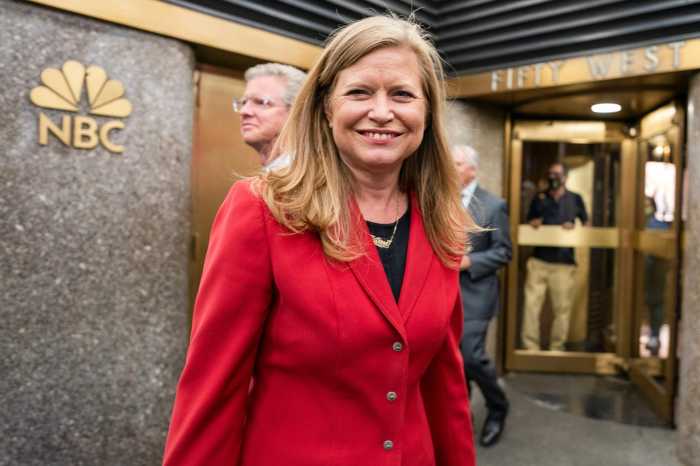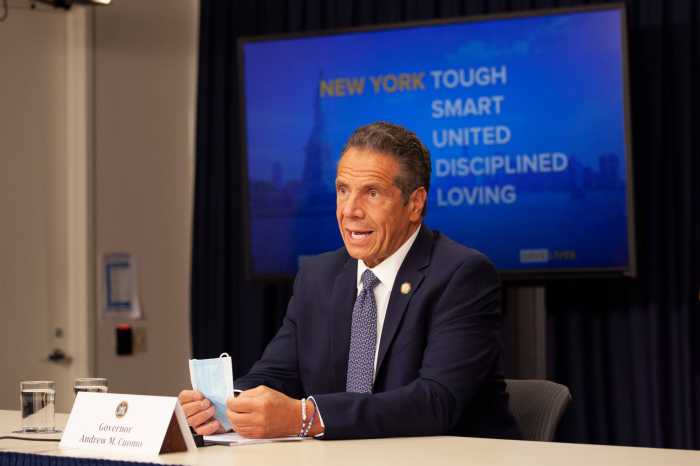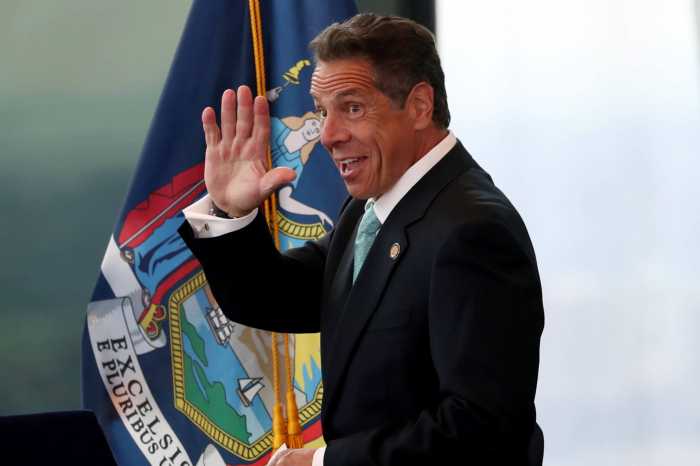Last Monday, I had the privilege of standing on the steps of our State Capitol alongside a diverse group of fellow activists and elected officials—representing districts from the Canadian border to eastern Long Island—to call for a comprehensive solution to the housing crisis. As this year’s budget negotiations reach the final hour, now more than ever, New Yorkers need Albany to act to finally break the stranglehold of exclusionary zoning on our communities and to protect tenants from unjust evictions.
As an African-American woman who grew up on Long Island, New York’s decades-old housing crisis is deeply intertwined with my own life story. People of color who grow up in Long Island will have almost a completely different experience than our white peers. Black and Latino children get pushed to certain neighborhoods, where the schools generally aren’t given the same resources as white neighborhoods and white schools. Explicit redlining and racial covenants in housing may be illegal, but the reality of segregation by other means is still alive and well, as Newsday’s 2019 investigation of broker steering clearly showed.
I have spent 20 years as an organizer and advocate on housing and homelessness across the state. I have seen working-class families struggling to feed their families after they paid rent that month. I have seen a six-person family live in a one-bedroom basement apartment in Long Island. When they couldn’t find a larger apartment that they could afford, they were forced to move in and double-up with family members in the Bronx. This anecdote is one of many that demonstrates the effects of the housing shortage that is decades in the making and the core of New York’s sky-rocketing rents and home prices.
As a young adult, I moved around looking for a permanent neighborhood of my own to raise my son, weighing school quality with commute times and job opportunities. For eight years, beginning in kindergarten, my son took a bus, a boat, two trains, and then walked two blocks just to go to a good school. When the COVID-19 pandemic hit in 2020 and school went remote, it became eminently clear how much time had been stolen from us by not having more accessible housing opportunities available.
While many are increasingly waking up to the depths of the housing crisis for the average New Yorker, for others this is as old as the state itself. New York City’s suburbs have some of the most restrictive zoning and highest segregation in the country, with policies rooted in Jim Crow. New York City is experiencing an exodus of its Black population. The lack of affordable housing is driving Black New Yorkers to other parts of the country where cost of living is more manageable.
New York State’s housing crisis has reached such a breaking point that this year it is finally piercing mainstream public consciousness and political attention in a way that we have not seen in decades. During the State budget session, for example, Governor Kathy Hochul’s proposed Housing Compact, a bold plan to create a real, enforceable statewide framework for housing growth across the state and transit stations in the metro region, are at the top of her agenda and the budget negotiations with the Legislature, now in the final stretch.
This State budget session has also made clear the resistance to taking steps that would begin to put New York on a path to a more inclusive future, coming back with a toothless counteroffer that would allow the suburbs to keep saying no housing, without consequence . There is no way to begin to right the wrongs without building more housing of all kinds and reforming zoning practices that were intentionally designed to keep out people with my skin color. However, just last week we saw a rally of Long Island Republicans that looked like an archival photo of the 1950s, complete with a slogan about “local control” sounding uncomfortably similar to “state’s rights.”
Their apparent reason for this outrage is opposition to the simple idea that the State create its own route to approve affordable housing when a town has not made a good-faith attempt to meet sensible housing growth targets or adopt zoning reforms that promote inclusion and housing opportunity. This is the core of the Governor’s Housing Compact proposal, and is drawn from reforms that have already been adopted in many other states across the country.
I am under no pretense that the housing crisis can be fixed quickly, or that the Housing Compact is the perfect, end-all-be-all solution. But it is a critical start as the State starts to take exclusionary zoning seriously, along with protections for existing tenants and increased support for housing assistance. The fact that a full-time job cannot support a stable home for oneself and one’s family in the most prosperous metro region of the richest country in the history of the world is a tremendous policy failure. New Yorkers deserve better, and it is past time for Albany to deliver.
Asia Thomas is the Director of Organizing for Open New York.







































